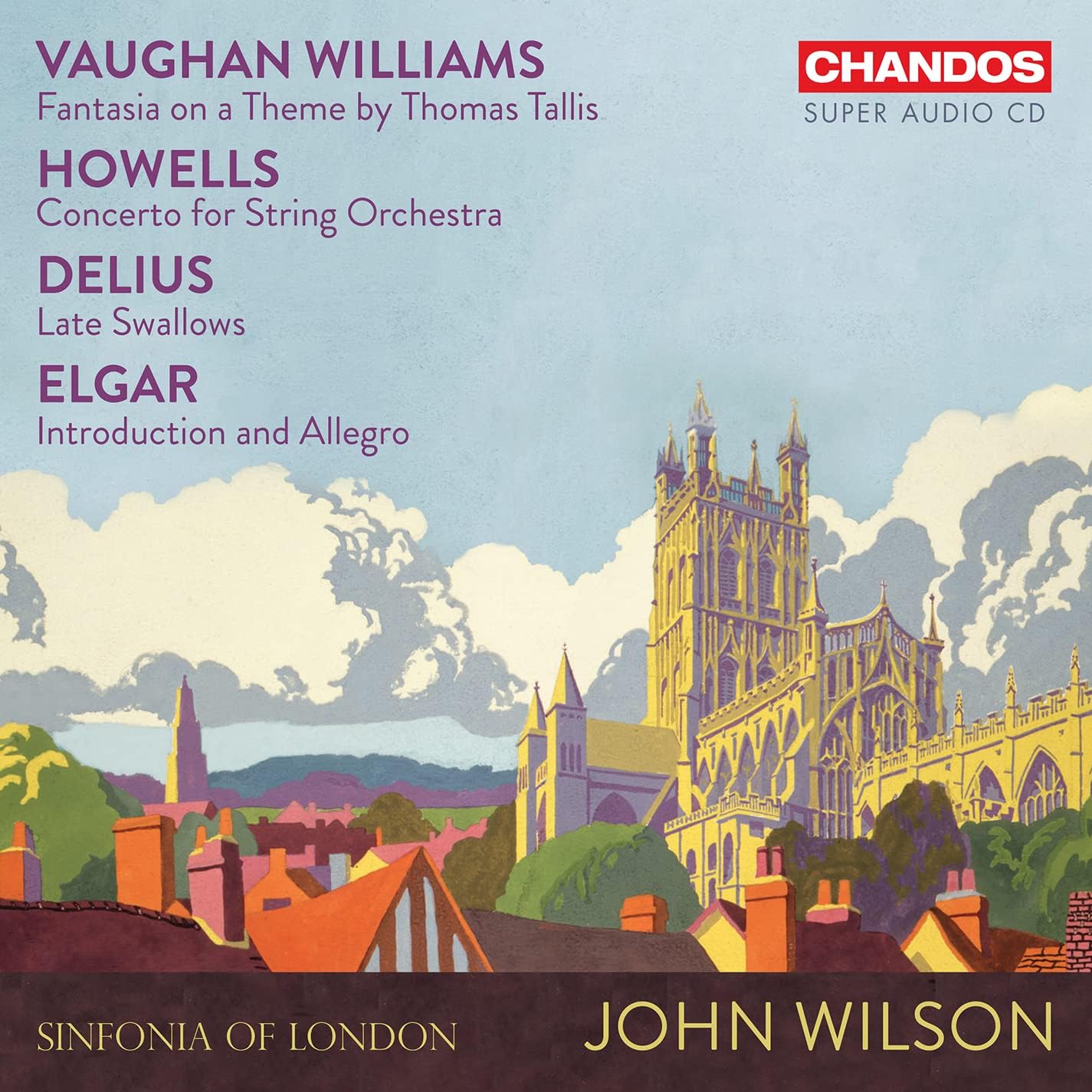 Vaughan Williams: Fantasia on a theme by Thomas Tallis, Elgar: Introduction and Allegro etc Sinfonia of London/John Wilson (Chandos)
Vaughan Williams: Fantasia on a theme by Thomas Tallis, Elgar: Introduction and Allegro etc Sinfonia of London/John Wilson (Chandos)
John Wilson has done it again! He is, at breakneck speed, building an extraordinary catalogue of recordings with his supergroup, the Sinfonia of London, which is – particularly in the realm of British string orchestra music – setting the pace both in terms of revelatory performances of canonic works and disinterred forgotten gems. Into that latter category must go last year’s wonderful John Ireland survey, and likewise the Berkeley and Bliss from 2021’s assemblage of British "B"s (alongside Britten and Bridge). Both are highly recommended. Here, the familiar takes the form of Vaughan Williams’s Fantasia on a Theme by Thomas Tallis, from which Wilson blows away some cobwebs, in what is the briskest recording I have come across. He gives the opening section lots of space (and starts it so, so quietly) but when things start to move, in the improvisatory sections for a soloist group, they really do move. The final chord is also lovely – a strong attack and then such a carefully graded diminuendo through its full duration. It’s always a pleasure to hear new things in such a well-loved favourite.
At the other end of the disc’s programme is Elgar’s Introduction and Allegro, written five years earlier, and with a similar soloists-versus-tutti instrumentation. Commissioned as a showpiece for the LSO, the Sinfonia of London aren’t afraid to dazzle – the fugue is scorching – but there is also a warmth and generosity about the playing, particularly in the introduction. I suspect I am not unusual in being mainly aware of Herbert Howells as a composer of choral church music, but his Concerto for String Orchestra of 1938 is well worth discovering. It’s from around the same time as Tippett’s much more celebrated – but for me badly overrated – Concerto for Double String Orchestra. The Howells is much more the thing. Inspired by the Vaughan Williams and Elgar that bookend it, it embraces rapidly changing moods, from the skittish to the steely, in its outer movements. In between is an affecting tribute to Howells’s deceased son Michael, in which Wilson coaxes the smoothest legato from his players (none of whom are credited in the booklet, incidentally). But, named or nameless, they are top-drawer players playing for a top-drawer conductor on this top-drawer album which deserves all the plaudits it will no doubt get. - Bernard Hughes
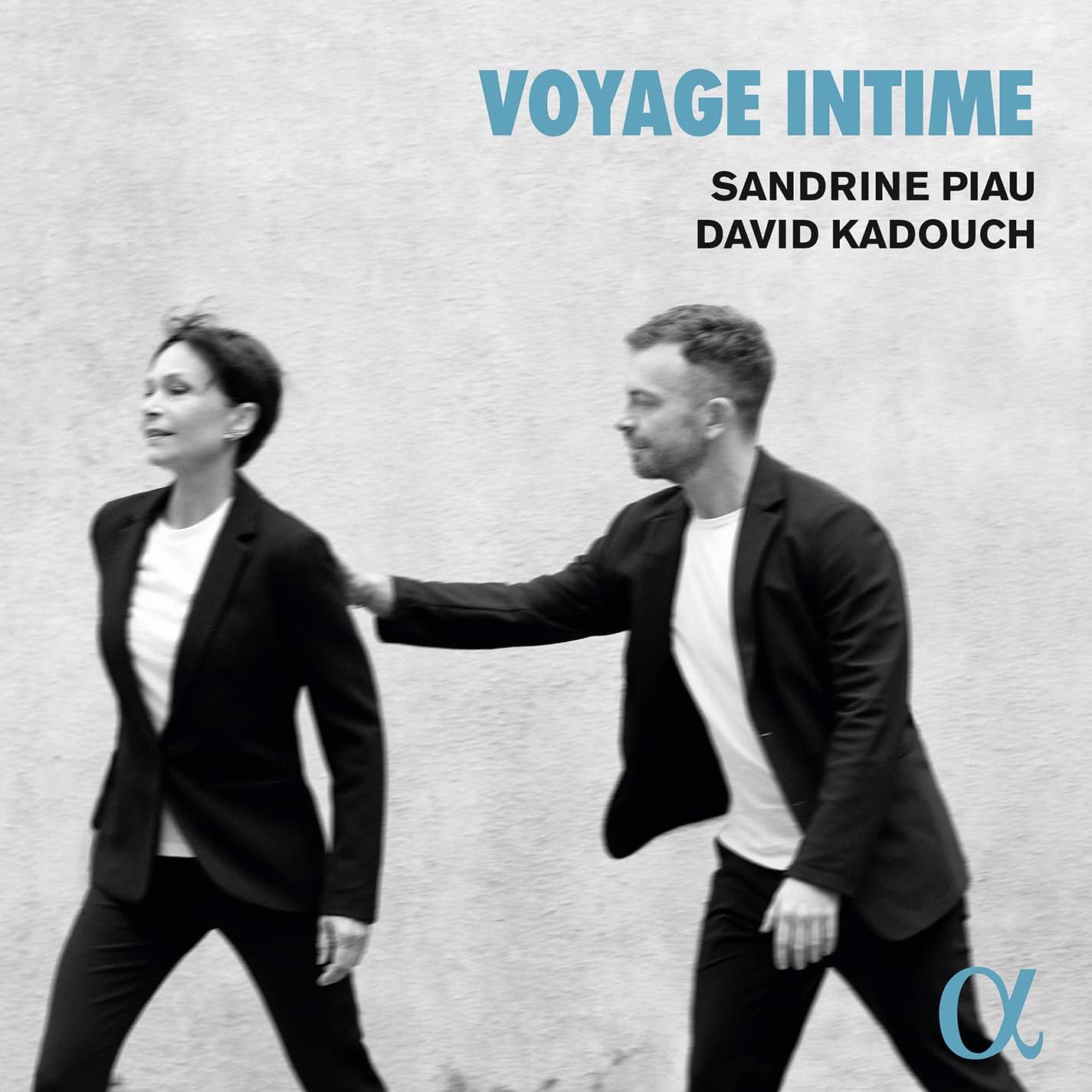 Voyage Intime – Songs by Liszt, Wolf, Schubert, Clara Schumann, Duparc, Boulanger, Debussy Sandrine Piau (soprano), David Kadouch (piano) (Alpha)
Voyage Intime – Songs by Liszt, Wolf, Schubert, Clara Schumann, Duparc, Boulanger, Debussy Sandrine Piau (soprano), David Kadouch (piano) (Alpha)
This is a glorious collaboration, and a wonderful record. If it doesn’t pick up some awards, it will probably only be because Sandrine Piau’s releases, particularly of baroque repertoire, tend to win so many of them anyway. I reviewed a very early outing by this duo at the Wigmore Hall in January 2022 and gave it five stars. The basic shape of that programme, a journey which starts with Lieder in German and ends with mélodies in French, has been kept in this recording made in Berlin last September, even if it has evolved with the inclusion of different songs. Perhaps the most jaw-droppingly effective section in pacing, flow and sheer attention of both singer and pianist to the detail of every nuance from beginning to end, are three Baudelaire settings by Debussy from the late 1880’s. These were the “problematic”, “Wagnerian” songs that Debussy was reduced to publishing himself in a tiny subscription edition. Piau and Kadouch go in deep, and find masterpieces. The songs tend to end gloriously high, and that suits Piau very well too.
In truth, however, there are delights throughout this recital. Kadouch’s expressive range comes across wonderfully in the Clara Schumann section, from the delicate barcarolle of “Sie liebten sich beide” to the insistent rhythmic propulsion of “Lorelei” and the fireworks of a flashily fast yet brilliantly effective C minor scherzo. But he can also set the reflective mood of a song like Schubert’s Goethe setting “Heiss mich nicht reden” or the Claudius setting “Der Tod und das Mädchen" with just a couple of beautifully weighted opening chords. Piau has engaged completely with texts which are the peaks of French and German literature. The programme notes in the 44-page booklet are thoughtful and unfailingly interesting, reflecting on the nature (and the success and the joy) of this collaboration and on the thematic links between the songs, with the original French coming across very well in the translations. - Sebastian Scotney
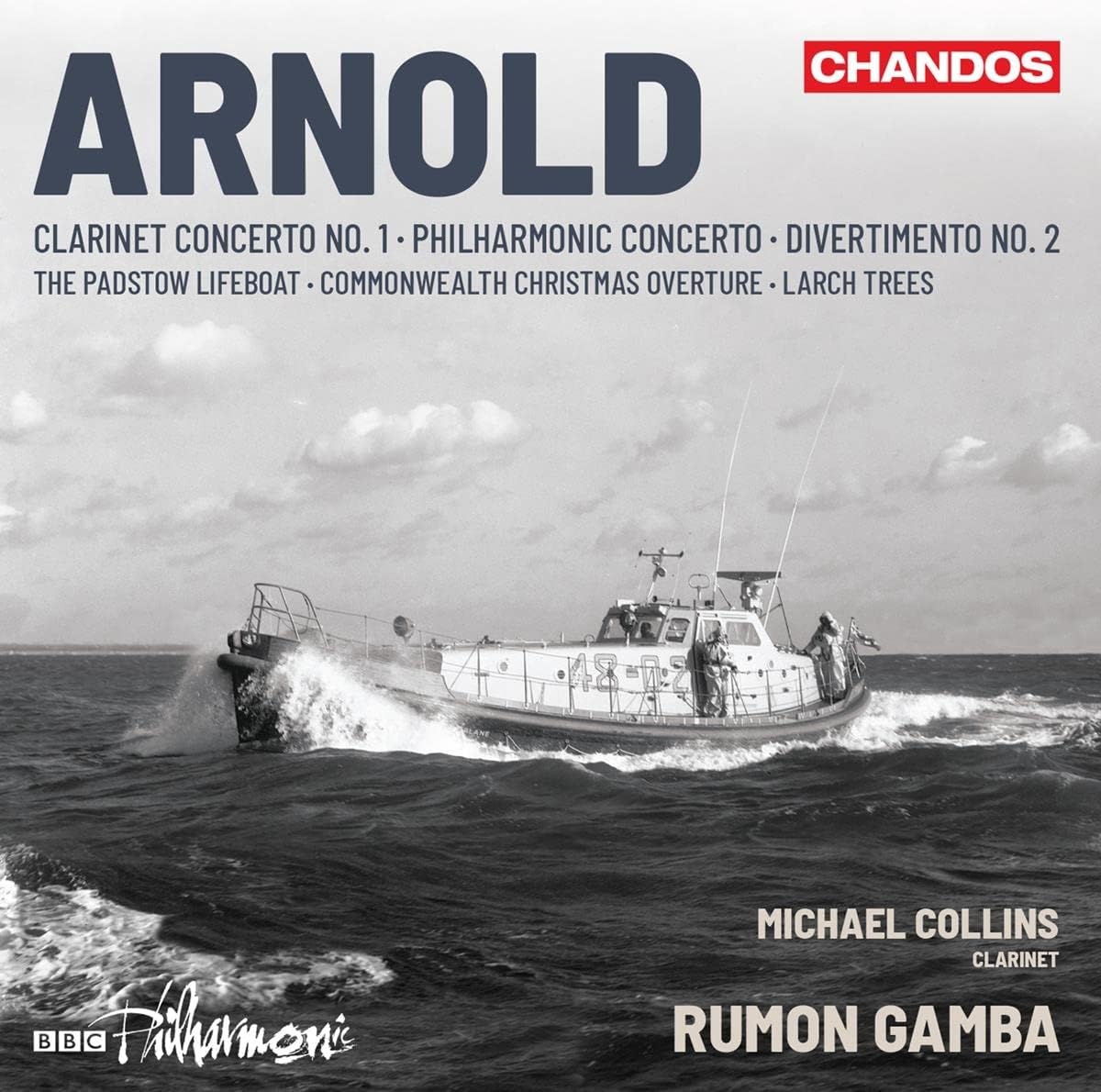 Malcolm Arnold: Orchestral Works Michael Collins (clarinet), BBC Philharmonic/Rumon Gamba (Chandos)
Malcolm Arnold: Orchestral Works Michael Collins (clarinet), BBC Philharmonic/Rumon Gamba (Chandos)
People usually put their best track up front, especially nowadays when people stream and if the first track doesn’t catch their fancy, may never get as far as track 2 and beyond. But the opener of this new Chandos release of Malcolm Arnold really doesn’t do anyone any favours. It’s called Commonwealth Christmas Overture, dated 1957, and dated it certainly is. After about nine minutes of fairly standard (and not unenjoyable) Arnold in festive overture mode, we suddenly get a switch to “Caribbean pastiche” mode and it is, as the kids say, totally cringe. Suddenly the orchestra falls away and we get a calypso, with marimba, congas and electric bass, and if it may have been seen as a way to celebrate the newly established Commonwealth back then, today it just sounds like the ultimate tone-deaf cultural appropriation. I was embarrassed listening to it, and there wasn’t even anyone else in the room. All of which is a great shame as most of the rest of the disc stands up very well. Arnold’s symphonies are fairly well accounted for on record, although as a sweeping generalisation I am less convinced by them than by his other orchestral music, a selection of which is presented in this anthology.
The Clarinet Concerto No. 1 (1948) is a weighty, often dark, piece, no empty Weberian display here. Played with steely focus by Michael Collins it has a symphonic heft and typically fluent orchestration. The Divertimento No. 2, written for the infant National Youth Orchestra, is full of youthful exuberance. Above all, it sounds fun to play without ever “writing down”, which has to be the ultimate object of a youth orchestra piece. Larch Trees is a sweet little tone poem, written while Arnold was principal trumpet of the London Philharmonic, and 30-odd years later he wrote his Philharmonic Concerto, for the orchestra to take on a US tour. It definitely has an American accent – reminding me of people like William Schuman – and a forthrightness which is quite bracing, if not as immediately lovable as the Divertimento. The BBC Phil are brilliant, though, driven forward by Rumon Gamba. The riotous and jaunty The Padstow Lifeboat is a great finale, its easy charm realised despite the composer’s increasing mental frailty at the time. - Bernard Hughes
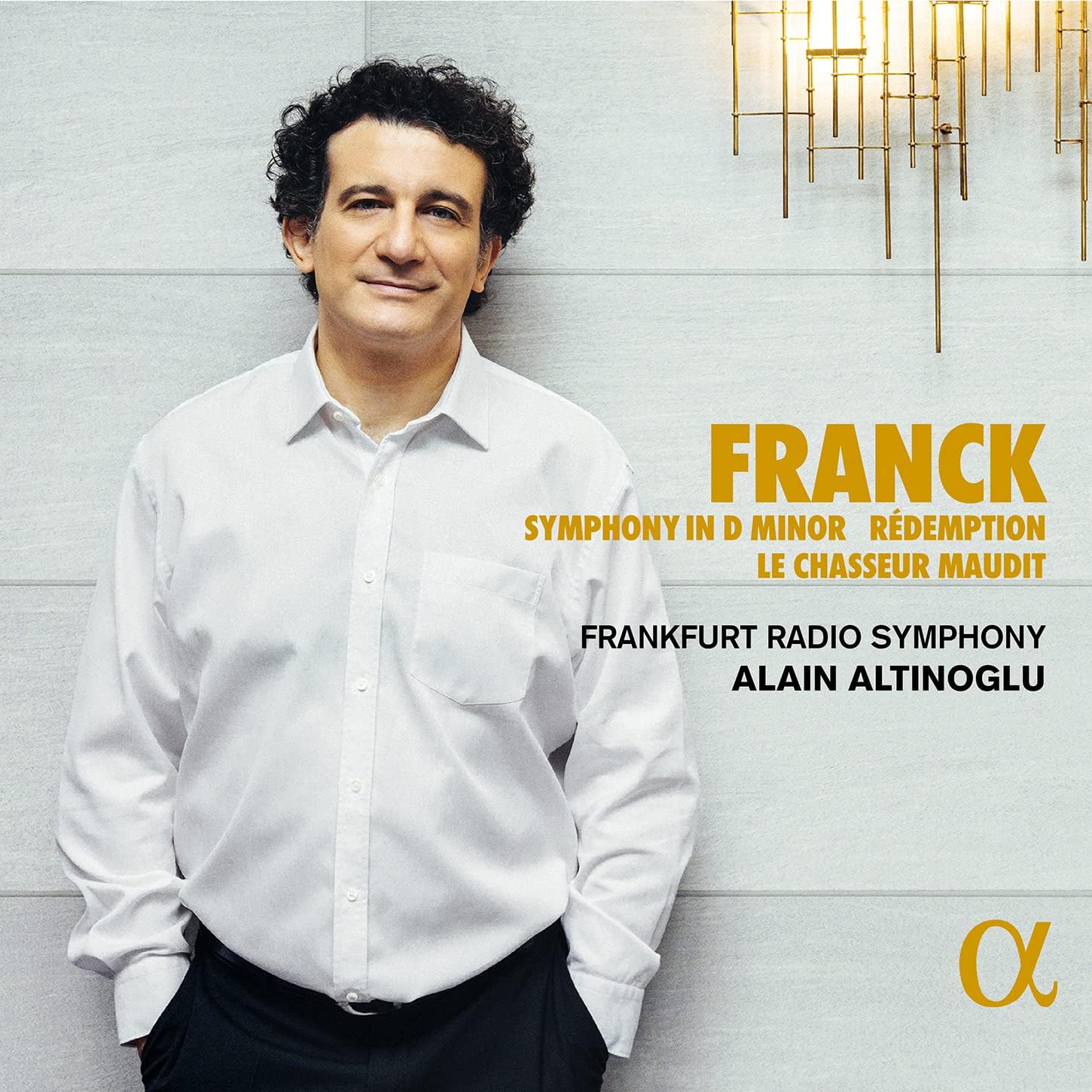 Franck: Symphony in D Minor, Rédemption, Le Chasseur maudit Frankfurt Radio Symphony/Alain Altinoglu (Alpha)
Franck: Symphony in D Minor, Rédemption, Le Chasseur maudit Frankfurt Radio Symphony/Alain Altinoglu (Alpha)
Franck’s Symphony in D Minor, once a mainstay of concert schedules is now an exotic rarity. The best-known recordings (try Monteux, Beecham and Maazel) all date from the early stereo era, when this piece was still very much a thing. Amateur orchestras still play it, and there was a well-received performance during the 2022 Proms, the 200th anniversary of Franck’s birth. I’ll be reviewing a collection of Franck piano music and a Warner Classics box set in the coming weeks – before that, here’s a really enjoyable new recording of this loveable piece, composed in 1888 and unsuccessfully premiered a year later. It’s not just nostalgia that keeps me coming back for more; this is an intriguing, sophisticated work. The three-movement structure was unusual at the time, Franck’s central “Allegretto” combining elements of slow movement and scherzo. Alain Altinoglu takes the movement at a flowing tempo, his cor anglais soloist among the best you’ll hear on disc, and you can sense the Frankfurt players grinning when they reach the scherzo-like theme at 4’34”. Outer movements are taut and exciting; I’d forgotten how Franck wrongfoots us at the start by reprising the slow introduction just when we’re desperate to move on. Altinoglu gives Franck’s organ-like scoring plenty of air; you can hear everything, notably the cornets when the second subject gets reprised. The finale is swift and exciting.
You’d never accuse Franck of being a dull orchestrator on the evidence of Altinoglu’s two couplings. Rédemption exists as a large-scale oratorio, Franck composing an instrumental movement to divide two choral sections. That stretch of music was replaced and thought lost, the manuscript labelled “Ancien morceau symphonique”. Finally premiered last May, this is its first recording. Knowledge of the oratorio’s religious subtext isn’t a prerequisite for enjoying what stands up well as an exciting, tuneful 12-minute symphonic movement. Though it’s intriguing to discover the shadowy, scuttling coda is presumably a depiction of an age when “faith has been lost, man once again addicted to the bitter desire for pleasure and fruitless excitement.” Which makes it an ideal curtain raiser for Le Chasseur maudit, a cautionary tale about the perils of hunting on the Sabbath. One of the great tone poems, it’s thrilling here, Altinoglu whipping up a storm in the scary final minutes.
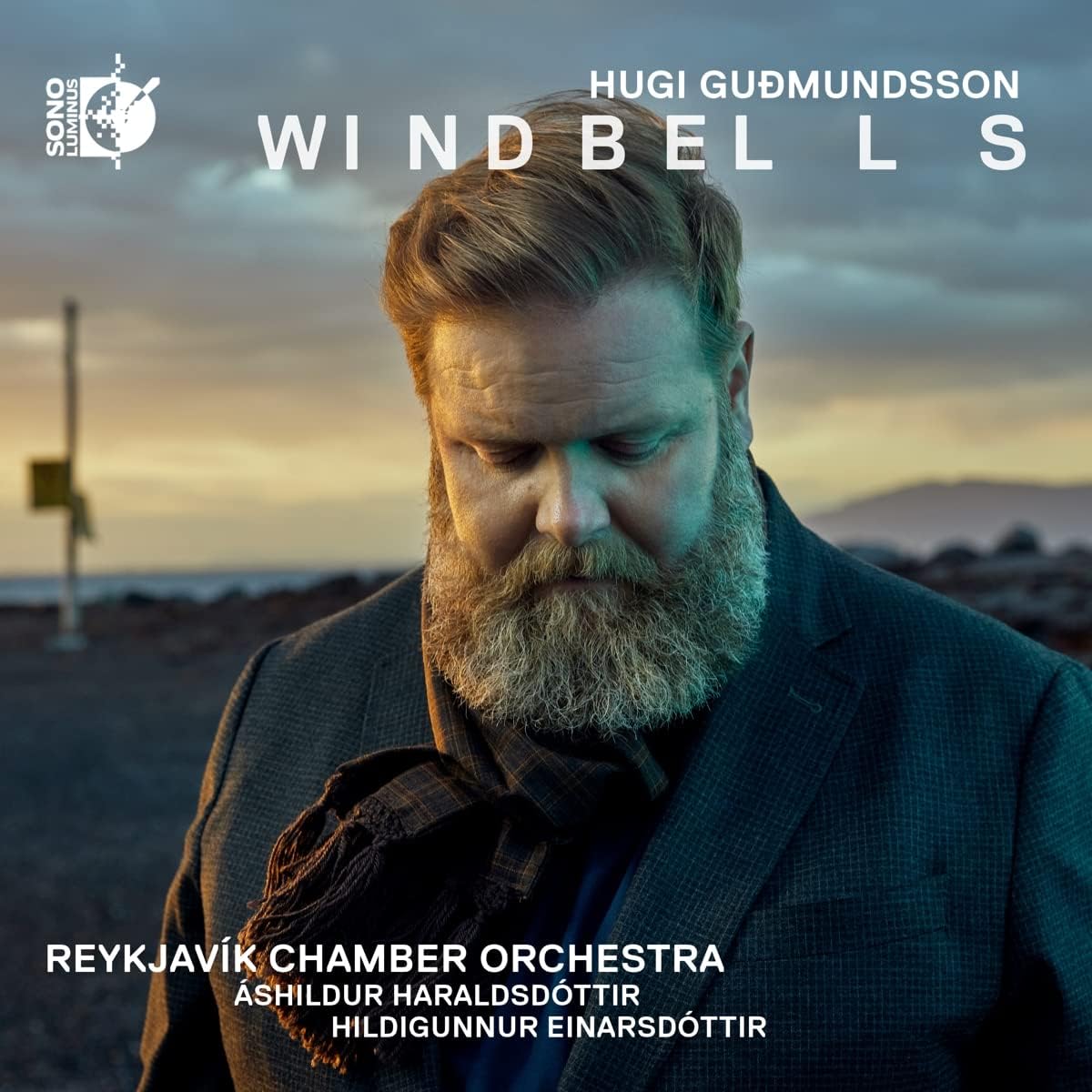 Hugi Guðmundsson: Windbells Reykjavík Chamber Orchestra, with Áshildur Haraldsdóttir (flute) and Hildigunnur Einarsdóttir (mezzo-soprano) (Sono Luminus)
Hugi Guðmundsson: Windbells Reykjavík Chamber Orchestra, with Áshildur Haraldsdóttir (flute) and Hildigunnur Einarsdóttir (mezzo-soprano) (Sono Luminus)
Icelandic composer Hugi Guðmundsson is refreshingly candid about his influences, citing George Crumb and Olivier Messiaen and relishing the fact that “one composer can plant a seed that germinates within another composer… a process as organic and natural as life itself.” That Guðmundsson recently received Iceland’s prestigious Optimism Award makes you want to like his music before hearing a note, and this beautifully recorded album doesn’t disappoint. The title track, Equilibrium IV: Windbells is a 15-minute piece for five players plus live electronics, the opening section pitting guitar flurries over breathy wind chords. The second section, “Funeral in a Deserted Church” turns low piano notes into mournful tolling bells, the stillness making the agitation sensed in “Wind Interrupt” more of a shock. The final section does magical, unsettling things with the piano sound. Every note is perfectly placed. Guðmundsson’s fascination with time comes to the fore in Brot, another multi-movement chamber piece where two movements are distorted recordings of previous sections, played backwards. The final “Danse Macabre” brings the disparate elements into sharper focus, the music sinister but catchy.
Songs from Hávamál II sets words taken from a 13th century Icelandic poem, here sung by mezzo-soprano Hildigunnur Einarsdóttir. There’s no electronics, the vocal line floating over an eight-piece ensemble including piano and five strings. The word-setting is exquisite; Einarsdóttir singing about desiccated pine trees and lives lived in freedom to wonderfully apposite music. Lux teams flautist Áshildur Haraldsdóttir with electronically modified flute sounds, the soloist slowly rising towards the light while the backing becomes sparer and more consonant. The performances are excellent, the players drawn from the Reykjavík Chamber Orchestra. Sono Luminus’s engineering is rich and all-enveloping, and there's a bonus Blu-ray Audio disc for those with the requisite audio equipment. An appealing collection.
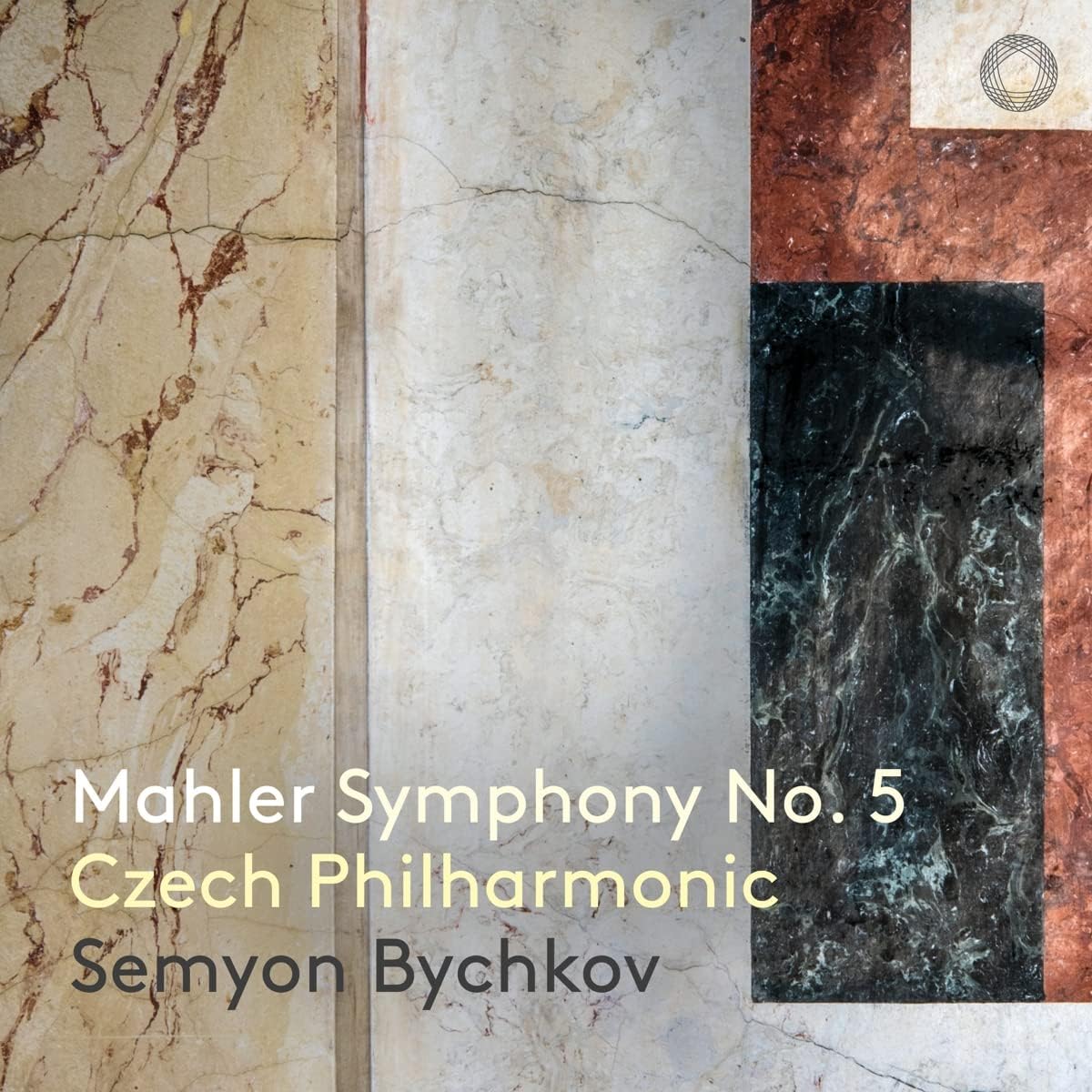 Mahler: Symphony No. 5 Czech Philharmonic/Semyon Bychkov (Pentatone)
Mahler: Symphony No. 5 Czech Philharmonic/Semyon Bychkov (Pentatone)
Park Avenue Chamber Symphony/David Bernard (Recursive Classics)
Two very different recordings of Mahler’s 5th have recently landed on the doormat, both worth hearing. Semyon Bychkov’s ongoing Mahler cycle with the Czech Philharmonic began last year with a radiant, pellucid account of No. 4. This was superbly played and beautifully recorded, capped with a lovely turn from soprano Chen Reiss in the finale. Bychkov’s 5th symphony is similarly well-prepared, but this work needs to begin sounding craggier and darker. Vaclav Neumann’s 1970s reading with the same forces is much more successful, Mahler’s opening movements snarling and seething. With Bychkov, the funeral march feels too polished, as if it’s playing out in warm sunlight. You get to hear a lot of oft-hidden detail, but Neumann brings us closer to the abyss, especially in the first trio section. Bychkov’s second movement is better, the Czech brass delivering a radiant brass chorale at 12’25”. After which, things really pick up. Jan Vobořil’s horn obbligato in the huge scherzo is both poetic and flamboyant, The “Adagietto” is perfectly paced, followed by an ebullient contrapuntal finale.
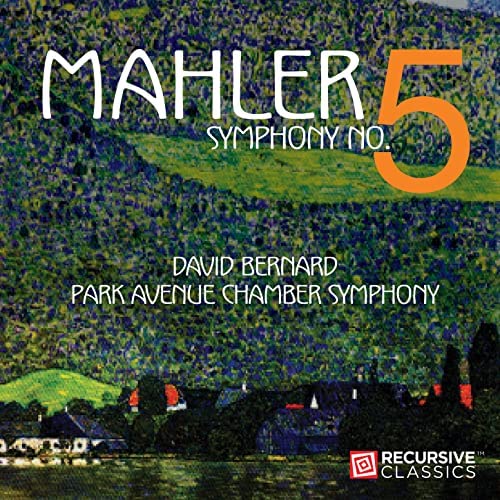 David Bernard’s Park Avenue Chamber Symphony is a semi-professional orchestra based in New York. Their playing, though polished, has plenty of edge and punch, the sonorities raw and rough when necessary. Bernard milks Mahler’s rhetorical corners for all they’re worth, moments like the massed horns’ whoop up to a high F in the first movement really telling. This feels very much like a live performance, the occasional wobbly moments never distracting. Lower brass are superb throughout, the second movement’s triumph well-earned. Bernard’s timings for the remaining movements are close to Bychkov’s, a resonant acoustic giving his hard-working strings extra body in the “Adagietto”. This “Rondo-Finale” is earthy, positive and humane. Both discs are worth investigating, Bernard’s coming with an interesting sleeve note linking the symphony to Mahler’s interest in early 20th century science.
David Bernard’s Park Avenue Chamber Symphony is a semi-professional orchestra based in New York. Their playing, though polished, has plenty of edge and punch, the sonorities raw and rough when necessary. Bernard milks Mahler’s rhetorical corners for all they’re worth, moments like the massed horns’ whoop up to a high F in the first movement really telling. This feels very much like a live performance, the occasional wobbly moments never distracting. Lower brass are superb throughout, the second movement’s triumph well-earned. Bernard’s timings for the remaining movements are close to Bychkov’s, a resonant acoustic giving his hard-working strings extra body in the “Adagietto”. This “Rondo-Finale” is earthy, positive and humane. Both discs are worth investigating, Bernard’s coming with an interesting sleeve note linking the symphony to Mahler’s interest in early 20th century science.

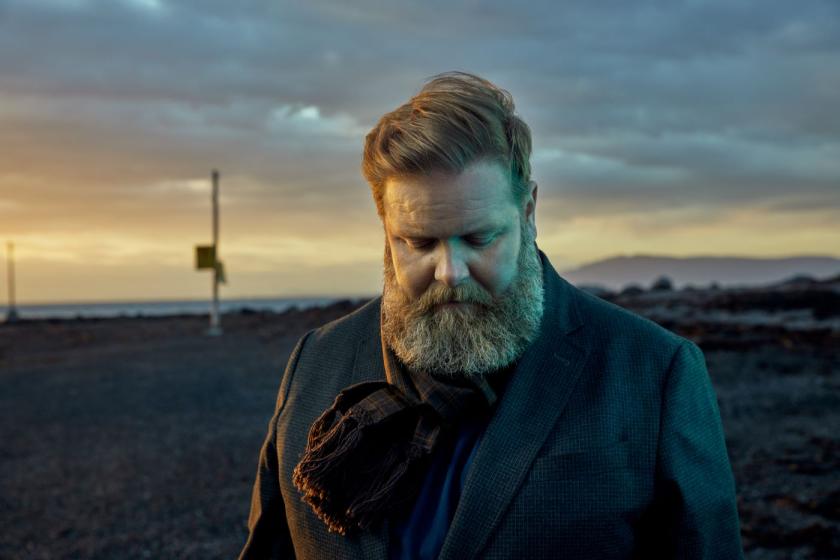












Add comment